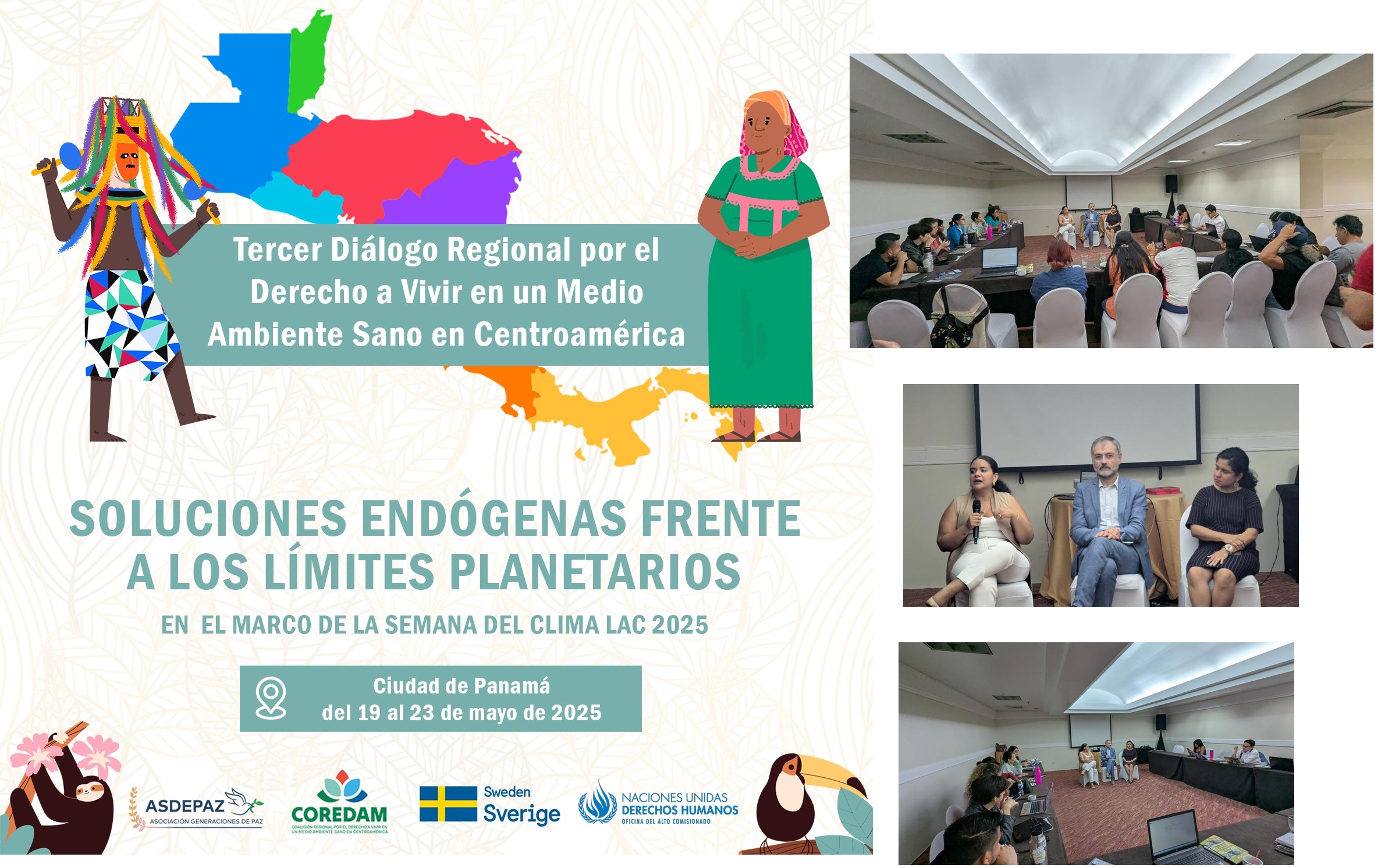Results from event "Tercer Diálogo Regional: El derecho a vivir en un medio ambiente sano – Soluciones endógenas frente a los límites planetarios
Work area(s)
Topic(s)

As part of the first Climate Week, to be held in Panama from May 19 to 23 of this year, the event "Tercer Diálogo Regional: El derecho a vivir en un medio ambiente sano – Soluciones endógenas frente a los límites planetarios” took place on May 20. The event was organized by the Asociación Generaciones de Paz (Asdepaz), the Coalición Regional por el Derecho a Vivir en un Medio Ambiente Sano en Centroamérica (Coredam), and the United Nations Human Rights Office High Commissioner.
This regional dialogue included a panel titled “Hoja de Ruta de Panamá hacia la implementación del Acuerdo de Escazú” featuring Mr. Carlos de Miguel, Director of the Division of Sustainable Development and Human Settlements of ECLAC; Ms. Francis Barría from Panama’s Ministry of Environment; and Ms. Joana Abrego, consultant for the development of Panama’s roadmap.
On this occasion, the Director highlighted that Panama was the eighth country to ratify the Escazú Agreement, on March 10, 2020, and became a State Party on April 22, 2021. He also recalled that Panama was one of the ten countries that signed the Declaration on the Application of Principle 10 of the Rio Declaration on Environment and Development in Latin America and the Caribbean—an initiative that marked the starting point for what we now know as the Regional Agreement on Access to Information, Public Participation and Access to Justice in Environmental Matters in Latin America and the Caribbean, known as the Escazú Agreement.
He further emphasized that, at the upcoming COP4 of the Escazu Agreement, to be held in April 2026, Panama will be the first Central American country to present a roadmap for the implementation of the Agreement, joining Belize, Grenada, Mexico, and Saint Kitts and Nevis, which will also present their roadmaps, as well as Argentina, Chile, Ecuador, Saint Lucia, and Uruguay, which have already published theirs and begun implementation.
Finally, he underscored that the roadmap is a tool created by the Secretariat of the Escazú Agreement to support States Parties in laying the groundwork for national implementation. This tool is organized into a set of steps, including the identification of key stakeholders, the design of a governance system, and the prioritization of actions to be undertaken by each State Party to advance the effective implementation of the Agreement.
Country(ies)
-
Panama